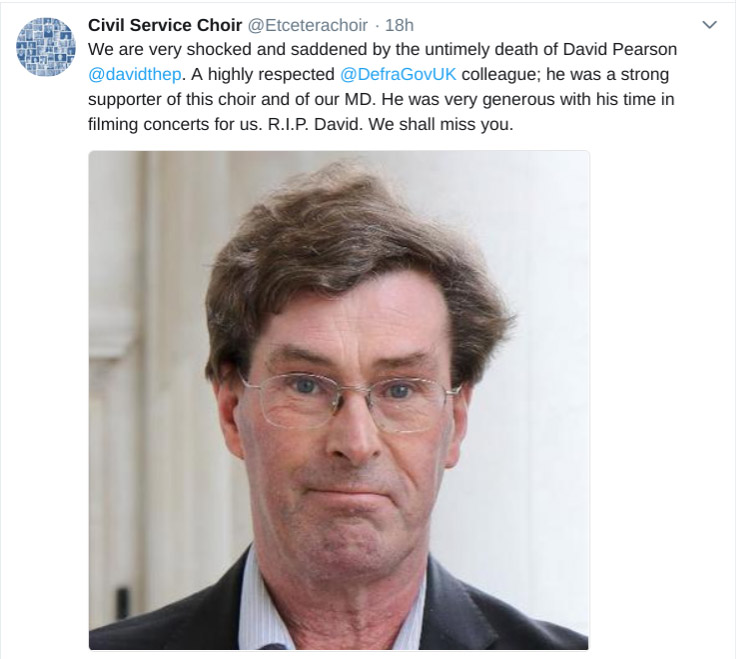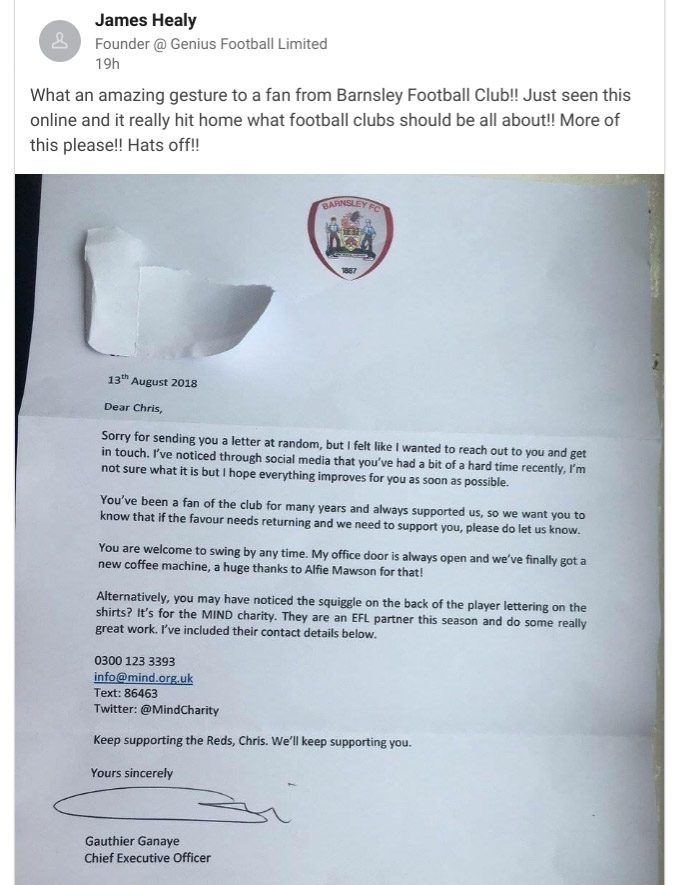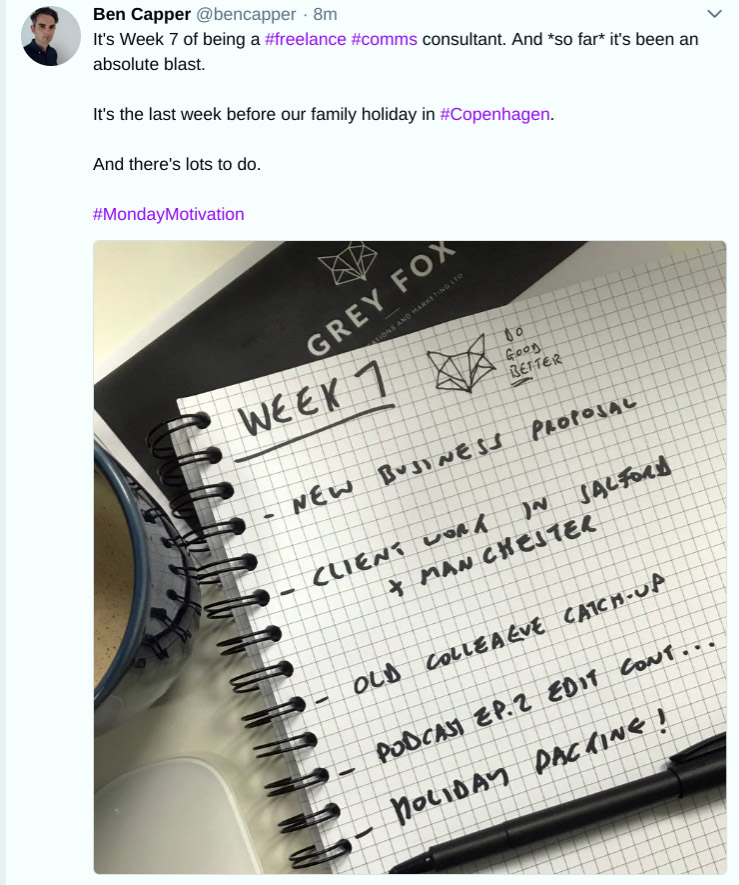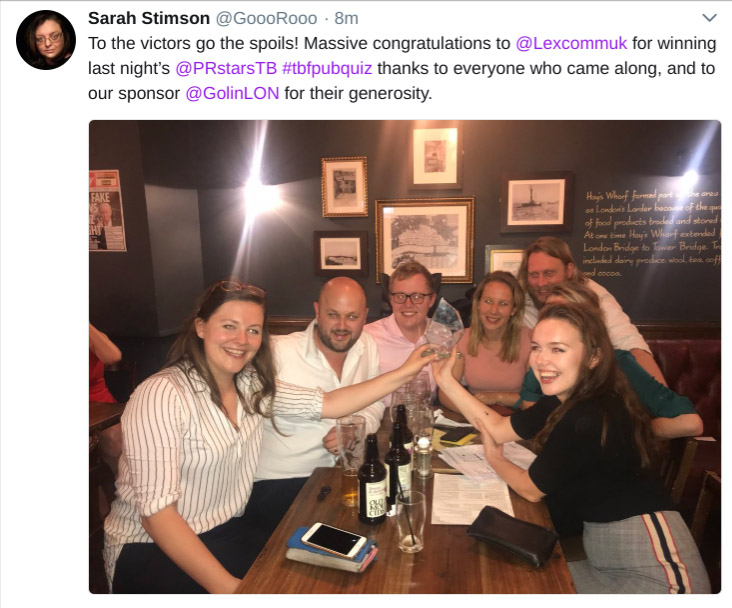This week in PR (17 August)

About the author
Richard Bailey Hon FCIPR is editor of PR Academy's PR Place Insights. He teaches and assesses undergraduate, postgraduate and professional students.

Behind the headlines

- The CIPR has been very active on the lobbying front this week: welcoming an ASA investigation into influencer endorsements; campaigning for the sector’s continued access to talent post Brexit; and warning of the effects of new tax regulations (IR35) on freelance practitioners.
- Simon Francis is to lead a PRCA panel exploring how to improve the social impact of PR.
- Lord Herman Ouseley reflects on the Kick It Out campaign 25 years after he launched it.
- Language and grammar: Me Myself and I are all annoyed at pronoun misuse (via Chris Lee)
- Essay about the internet from Jeff Jarvis: Platforms are not Publishers. ‘The essential value of the internet is conversation, not content.’
- On the day that 350 news organisations in the US wrote editorials in support of press freedom, US public relations bodies including PRSA and Page issued their own statement: ‘Today we join with our compatriots in the news media to proudly affirm the Fourth Estate as a vital engine of democracy.’

Academic
- Here’s the full text of a Betteke van Ruler academic journal article on Communication Theory: An Underrated Pillar on which Strategic Communication Rests
- The new issue of PR Journal is freely available, with articles on race in America; change management communication; and the use of visuals on Twitter.
Insights and opinions: Pick of the posts
These are the editor’s pick of posts about public relations this week (UK focused, but with a global outlook). Recommendations are welcome to editor@prplace.com or @pr_place
APPC and PRCA
- Gavin Devine: Ten Things I Like About You: Reasons the PRCA and APPC should get together (15 August)
‘Yes, I am a board member of the PRCA. But I was also once Deputy Chair of the APPC. I am a lobbyist and public affairs professional, and proud of it. I’m not biased, I have no vested interest, I just think it’s time to merge. Here’s why…’
Consulting

- Esther Porta: Are you a freelance PR – make networking your plus one! (14 August)
‘For me, the real key to sustainable success and finding the type of projects and contracts that you want is market research, and professional memberships and networking in the sector we know better than anyone.’ - Emma McCallum: Do you need a PR agency? Or would an Independent Consultant be a better fit? (12 August)
‘So, for those businesses considering whether a PR agency or an Independent PR Consultant would be most appropriate, what are the benefits of working with a Freelance PR?’
Business / profession

- Roger Darashah: For the future of PR, look back 100 years (17 August)
‘The challenge of competing for people’s attention is nothing new; and neither is the idea of engaging in their conversations, rather than simply imposing the brands.’ - Kritsina Wilcock: Why communications will be much easier after the extinction of the human race (16 August)
‘Communications shouldn’t be hard. Yet on frequent occasions it’s more than, ahem, a little challenging.’ - Bridget Aherne: Professional comms costs (11 August)
‘Public relations, communications and associated functions are professional services that should be paid for exactly in the way legal and accountancy services are paid for.’ - Dan Gerrella: 10 leadership lessons from football management (13 August)
‘The game starts from the press conference onwards. Choosing what to say and what not to say will influence a result – this is true in PR too.’ - Alister Foye: PR is dead, long live PR: the challenges (and a new future) for public relations (no date)
‘You have traditional media relations viewed by many as a dying art; marketers adopting PR principles; media owners happy to create news on the right issue for the right price; and a new breed of influencers who are disrupting the PR relationship playbook.’
Education
- Emma Leech: Clearing: It’s about People, People (16 August)
‘Too many universities have completely missed “the people thing” and the need to really think about, understand and respond to potential students as individuals.’ - Mark Dorey: Reflections on a decade working in HE comms (13 August)
‘Working in communications roles I’ve been able to interact with people from all parts of the institutions; vice chancellors, ground staff, cleaners and most importantly coffee shop staff.’
- Gary Taylor: Is this the end of the PR degree? (12 August)
‘Rather than mourn the passing of the oldest undergraduate PR degree course at Bournemouth, or tut sadly as lots of other PR degree courses team up with journalism, I look at this as an opportunity to reshape undergraduate degrees – hopefully for the better.’
Mental health
- Jessica Pardoe: Postgrad depression is real – here’s how I combat it (15 August)
‘My little tattoo is a constant reminder of a cracking three years and the incredible friends I made. It’ll always be with me, just as they will be – i’m really happy that I chose to get it done.’ - Jo-ann Robertson: Pick yourself up and dust yourself down (15 August)
‘This week I attended a full-day course run by Mental Health First Aid (MHFA) England with 14 colleagues from Ketchum London. I am now a qualified mental health first aid champion.’
International
- Alex Malouf: A Women-Only speaker list for marketing and comms in the Gulf (11 August)
‘All the women below are exceptional in their own right, and these are all people I’ve worked with or heard speak.’
Careers and skills
- Amanda Coleman: At different stages (15 August)
‘I am expected to be an expert negotiator, a coach, a risk manager and a visionary. In a business everyone will look to you for advice and guidance; from the staff you manage through to the CEO.’ - Hamish Thompson: The cat with two brains (15 August)
‘If, as communicators and marketeers, we turn to the data rather than, as cats do, trusting the processing power our guts, we’ll get swamped and delayed.’ - Lorna Branton: It ain’t what you do, it’s the way that you learn it (15 August)
‘In my view, it’s not so much what gets you into communications that’s important, but what you do once you get there.’ - Stephen Waddington: How to optimise your LinkedIn profile for search and discovery (13 August)
‘It’s important that you complete your profile to maximise the opportunity for search and discovery. Rich profiles are visually engaging and enable prospects and to seek you out. They are also optimised for search. Here’s a ten point workplan to get you started. - Marcel Klebba: Why work in technology public relations? (12 August)
‘Another important role of public relations in technology sector is explaining really complex ideas in simple words. Simplifying technology and getting under the skin of it means the job is never boring and can be hugely gratifying.’
Tools and automation
- John Brown: Social media analytics tools are not for market research [vlog] (15 August)
‘What Twitter is not is a great platform for observing sustained audience behaviour over time… Instead, invest in some proper research, take that out of the scope of social media and talk to some real people.’ - Joanna Drabent: Booking a PR tool to ride (14 August)
‘Prowly’s task is to help PR pros become independent in creating visually attractive press releases and brand newsrooms, and, in the process of managing contacts and distributing content, give them superpowers in the form of analytical data, which allows them to deliver better results every day.’ - Vassilena Valchanova: Productivity Tools – A Fast Track to Success (13 August)
‘My system consists of three key tools: A task management app to keep track of projects and to-dos; A calendar app for appointments and time blocking; A note app for your archive of useful resources and notes.’ - Carla Mateus: Five mistakes people make using Google Analytics (13 August)
‘Goals enable you to see if people are doing what you actually want them to on your site. This can be anything from visiting more than one page, to downloading an asset.’
Influencer marketing
- Scott Guthrie: Influencer disclosure crackdown as watchdog investigates (16 August)
‘A UK regulator is clamping down on social media influencers who fail to properly declare when they have been paid, or otherwise rewarded, to endorse goods or services.’ - Michael White: Influencers are getting content fatigue, so are news organisations (plus more) (16 August)
‘The pace of building yourself an engaged community online is hard work, consuming every waking hour.’ - Laura Crimmons: Is There Real Value in Using Influencer Marketing? (15 August)
‘Influencer marketing isn’t new at all, it’s essentially the same as celebrity endorsement which has been around for years.’
Crisis and reputation
- Jennifer Sanchis: What can open data bring to your reputation? (15 August)
‘One of the most reliable and most important data sources in the UK has been made available by the government on its data.gov.uk website.’ - David Alexander: Can Ben Stokes restore his reputation after brawl scandal (16 August)
‘Stokes has now publicly stated that he is going to focus on his cricket and along with his advisers, he must work harder to ensure that he avoids any more encounters with the law, that he stays off social media channels and that he acknowledges that his behaviour was damaging for the sport he represents.’ - Stuart Thomson: What makes a good CEO in a crisis? (15 August)
‘Self-awareness in a CEO can be a valuable trait. That means everything from putting a strong team around them, not just those who agree, through to knowing when to listen and when to make a decision.’
Internal communication
- Helen Deverell: 7 top tips for credible communication (14 August)
‘As useful as it is to know how many people clicked on your intranet article, that’s not what’s going to wow your CEO. Start thinking about how you can measure the tangible impact you’ve had on the business.’ - Caroline Kealey: Communicators as Change Agents (no date)
‘The Achilles heel of change leaders tends to be communications – they don’t know what to say, when or how. They are extremely uncomfortable with the naturally emergent nature of change, and struggle with how to keep teams informed and engaged when full information is almost never available.’ - Mike Klein: Four dimensions of internal influence: ambassadors, influencers, advocates and followers (13 August)
‘When it comes to organizations and their social dynamics, I tend to think there are four main kinds of people, each of which has distinct roles and needs to be addressed in distinct, yet integrated ways.’ - Advita Patel: Unleash your inner rebel! (10 August)
‘I’m proud to say that the rebel in me has been unleashed and I’m now a fully-fledged member of the #commsrebel committee.’
Media and digital

- Ella Minty: The 5 Rules of Successful Media Relations (16 August)
‘Build a relationship based on trust and respect – after all, if you provide the journalists with a good story, you become reliable as a source and, if you do not fluff your way in or out of that professional rapport, you’ve built a relationship for life.’ - Paul Burton: How small businesses can use Instagram Stories – an in-depth guide (no date)
‘Instagram Stories gives small businesses an informal way to promote themselves, their products and offers in a way that doesn’t appear pushy or salesy. And it’s perfect for showing off the people and passion that makes your business tick.’ - Tim Downs: How do we make sure tech companies are doing enough to tackle fake news? (13 August)
‘Given that it is boosted, promoted, sponsored posts that carry the greatest influence because they allow access to specific audiences, deliver greater reach, increase engagement and drive shares then make them the tech providers legal responsibility.’ - Dan Slee: SHODDY NEWS: How to complain about bad journalism 2.0 (12 August)
‘Every generation blames declining editorial standards. But as news rooms have been hollowed out old heads have gone. There’s also less time to check copy and pressure to get the story online.’